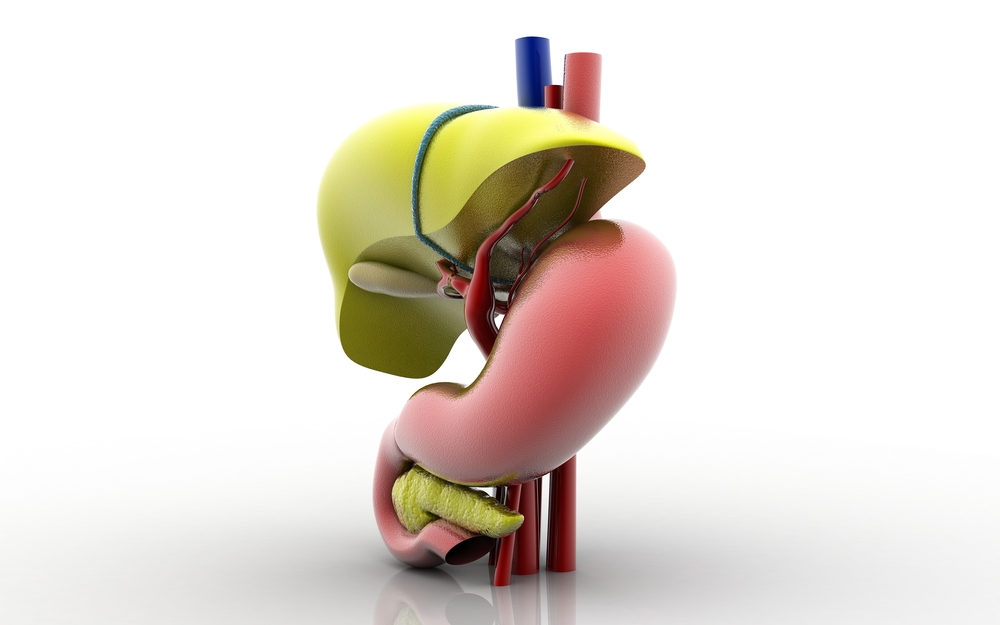Bowel dysfunction is the term given to problems with passing stool, which can lead to fecal incontinence (an inability to control bowel movements) due to diarrhea, constipation, or nervous system damage.
Bowel dysfunction is a common symptom in men with adrenomyeloneuropathy (AMN), a type of adrenoleukodystrophy, and to some extent in women who are carriers of ALD.
In AMN, mutations in the ABCD1 gene results in the insufficient production of a protein called ALDP. ALDP is responsible for the transport of certain molecules, such as very-long-chain fatty acids (VLCFA), to specialized cell compartments called peroxisomes, where the cell breaks them down. Without enough ALDP, VLCFA accumulates inside cells, leading to damage to the protective myelin sheath that covers nerve fibers. This is called demyelination.
For proper bowel movement, nerve cells must control the sphincter muscles in the rectum and anus. In AMN, the demyelination of these nerve cells affects their ability to work as intended, and bowel dysfunction results.
Here are some suggestions for better managing bowel dysfunction.
Regulate the fiber content of your diet
Gradually increasing fiber in the diet can help to manage fecal incontinence. Foods rich in fiber include wholegrain cereals, peas, and nuts. While a high-fiber diet can work to relieve constipation, it can also cause bloating and flatulence if you have a slow bowel. It is important to regulate the fiber content of your diet based on your specific needs.
Establish a bowel regime
Establishing a routine for emptying your bowels may help reduce bowel dysfunction. Bowel contractions are usually the highest after waking up from sleep or after a meal and/or warm drink. Schedule your toilet trips so they coincide with your sleep and mealtimes.
Use bowel evacuation techniques
There are several techniques that can help improve bowel transit, and moving stools towards the rectum. Some of these include:
- abdominal massage, using the heel of the palm to massage the abdomen from left to right in a circular fashion
- The Valsalva maneuver, a method of exhaling against a closed airway (a closed mouth and pinched nose) that can exert pressure for a bowel movement. Patients with cardiac or respiratory problems should avoid this
- using suppository inserts or perineal cleaners
- transanal irrigation, which involves introducing lukewarm water into the colon and rectum to induce a reflex of voiding (clearance).
- electrical stimulation, or a professional stimulation via electrodes of the sacral nerves to improve bowel function
Consult your doctor before using any of these techniques, as not all are applicable to everyone.
Practice Kegel exercises
Kegel exercises can help to strengthen the muscles of the bladder, large intestine, and uterus, and ease bowel dysfunction. Before starting Kegel exercises, consult your doctor to ensure they may be helpful to you, and for guidance on how to perform these exercises correctly.
Consider medications
Certain medications, such as antidiarrheal medications and laxatives, may help in preventing fecal leakage or ease difficulties you may be experiencing when passing stools. Discuss with your doctor the applicability of these medicines and their compatibility with your ongoing ALD treatments.
In rare cases, surgery may be required to repair damage to muscles and nerves responsible for bowel dysfunction.
Last updated: March 11, 2020.
***
Adrenoleukodystrophy News is strictly a news and information website about the disease. It does not provide medical advice, diagnosis or treatment. This content is not intended to be a substitute for professional medical advice, diagnosis, or treatment. Always seek the advice of your physician or other qualified health provider with any questions you may have regarding a medical condition. Never disregard professional medical advice or delay in seeking it because of something you have read on this website.


